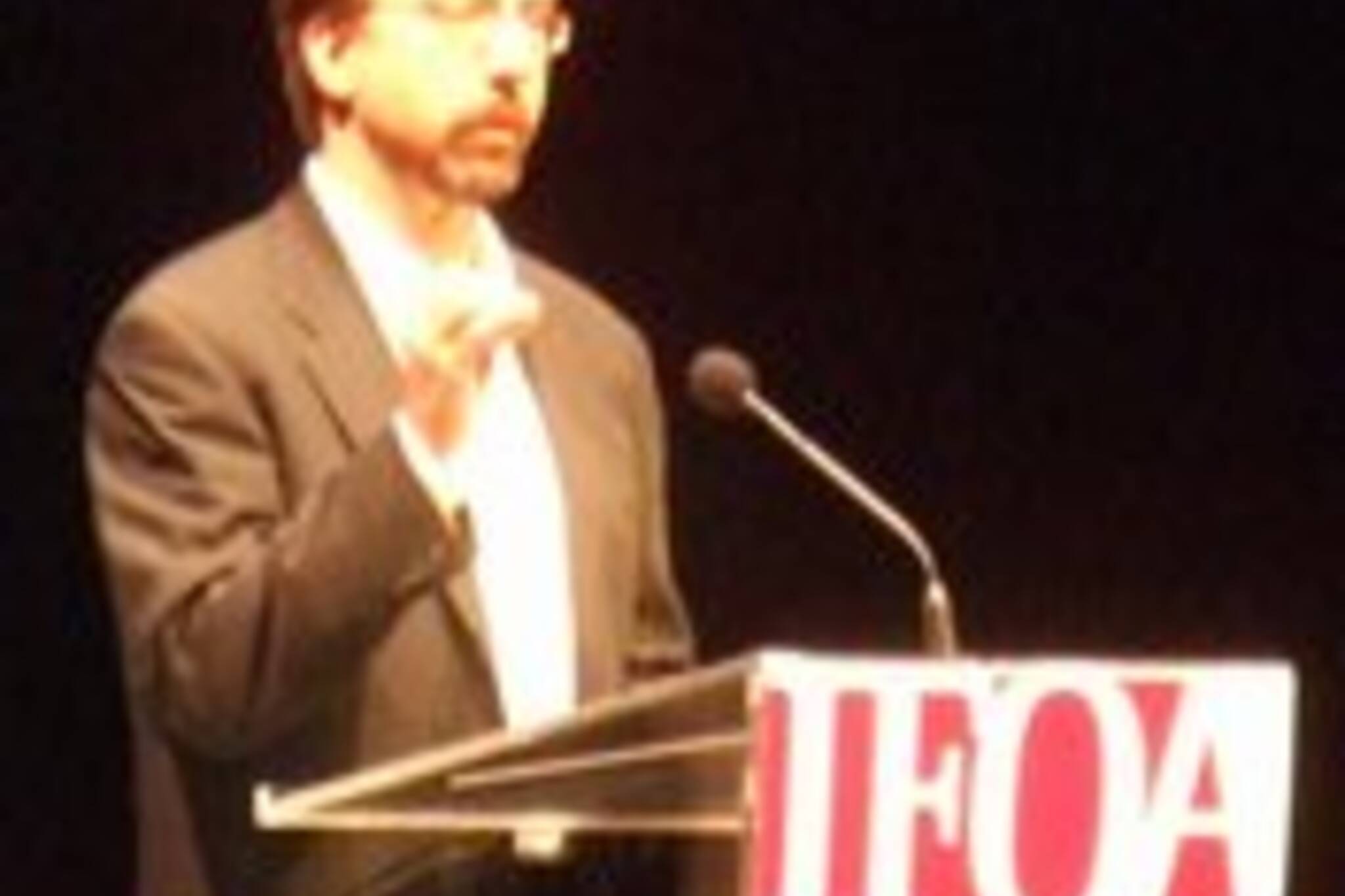
IFOA: Governor General Finalists
Last night I headed to the GG reading at the IFOA - featuring the English fiction finalists. You'll remember that the GG, like the Giller, has been stimulating chatter among the bookish types because of the seemingly out-of-left-field nominees. Small pubs, relative unknowns, etc.
The reading, I figure, is the ideal chance to see what all the fuss is about.
The fiction finalists - all men, all save one white, make of that what you will (a woman next to me commented, on her way out "No women. Curious, isn't it?").
The books:
Peter Behrens - Law of Dreams
Trevor Cole - Fearsome Particles (you can read my review here)
Bill Gaston - Gargoyles
Paul Glennon - Dodecahedron, of A Frame for Frames
Rawi Hage - De Niro's Game
Was I bowled over? Were my socks knocked off? No, not really. My mind remains un-blown. Which isn't to say the books didn't pique my interest after their presentation by the authors.

Peter Behrens read first, from his tale about a young man (15ish) trying to survive in the midst of the Irish Famine. Behrens read a couple of selections where Fergus (the boy) meets Molly, a tough red-haired 'railroad wife' who runs the lodging where Fergus is lately employed.
Behrens read in an almost rushed way, words banging against each other, occasionally pausing (a la Shatner) briefly to emphasize something of greater dramatic weight during a conversation. Despite the total lack of an Irish accent, a surprisingly vivid picture was drawn, of the landscape and, in particular, Fergus' relationship to his surroundings and other characters.
Trevor Cole's (pictured above) reading was definitely the most entertaining. Although I didn't hugely enjoy reading his book, he way of reading aloud from it really brought out the wit, humour, and irony in the text.
Cole is constantly mocking his characters, and himself in a way, choosing to underscore the comedy rather than the drama - although that's the smart thing to do, in a reading. More people are likely to remember laughing.
Bill Gaston chose one of the stories from his collection that features a slightly peculiar old man who decides to remove all the doors from his house (he's discovering "a new kind of architecture"), hoping that theives will give houses without doors a wide berth.
The strength of Gaston's reading, and I assume most of his stories, is not necessarily the unique situations he imagines (he jokes "most of them are extremely sensitive and artful" when describing this protagonist's kind of misfortune), but rather the insights the characters think.
"Everyone's always right," the man in the story thinks, "isn't that funny. (...) The tragedy is that though we are all completely right, we don't know what to do."
Paul Glennon's reading tries to illuminate a complicated kind of book - the stories seem unlinked, and from a variety of genres, until you start to see connections (a ways through the book) and (I assume) it finally all comes together.
Fun for Glennon, to write in a variety of styles (the description rather reminded me of David Mitchell's too-smart-to-believe Cloud Atlas), and I suspect piecing the story together holds the appeal of a mystery novel.
He read from a section written like a kid's adventure book, with the usual "plucky, precocious" narrator, whose father disappears, then later from a section in the style of an explorer's narrative - a man alone on an ice floe attempting to reach the artic.
Rawi Hage (pictured) was the most unapologetically grim and uncomfortably realistic reading. De Niro's Game (the title refering to Russian roulette from Deerhunter) follows two guys who start committing crimes during a war, one hoping for power, the other hoping for money enough to escape.
Hage read almost grimly, subtly, letting the discomfort of his narrators and their anger speak without too much emphasis from his voice. I was struck by the violence and machismo of the characters, and of the narrative. Is that a function of war stories, I wonder?
Certainly a distinct bunch of voices, but, well, I wasn't on the judging panel, I didn't read the hundreds of submissions, I don't know what the aim is beyond to encourage Canadians to read their own authors. My list would, I think, have been different.
The winners are announced in November - check Book Scene for answers.
Also, I'm interviewing a bunch of authors over the next few days for the IFOA podcast series (today includes Eden Robinson, Marissa Pessl, and Madeleine Thien). Check it out.
Latest Videos
Latest Videos
Join the conversation Load comments







